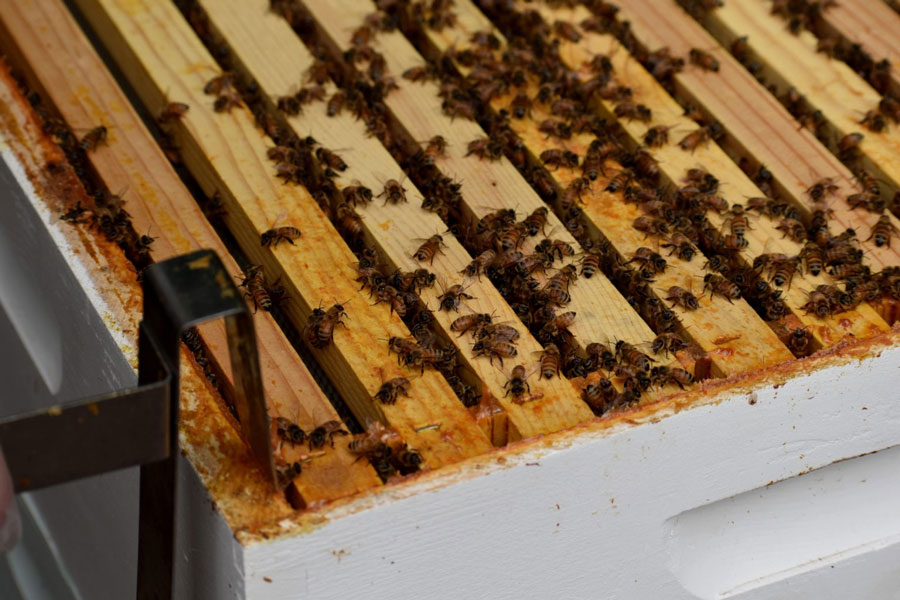Bees have been a topic for conservationists throughout the country but do people know why? Sure, we know they make honey, but many do not know their importance of pollinating. Over recent years the decline in bee populations has been alarming. To counteract the decrease the National Resources Conservation Service (NRCS) and Farm Service Agency (FSA) have devoted millions of dollars annually to encourage and help farmers and landowners to plant and maintain pollinator habitats on private lands.
Over 90% of all flowering plant species rely on insect pollination. Specifically, 35% of all global food production is from crops pollinated by bees alone. Those numbers may seem alarming, but the truth is these little workers make an impact much larger than expected. Imagine a world without pollinators and think how much our food supply would drop.
The good news? There are things you can do in your back yard to help! You can create your own pollinator habitats- look for species of plants that are not just attractive to bees but to other pollinators, too. Try to cut down on cutting your grass, pun intended. I know seeing your neighbor mow urges you to mow yours again, but this constant cutting is not just bad for your grass, it is bad for the insects who inhabitant it as well. Dandelions are some of the first signs of spring and they are also the first food source for bees, so do not spray them on sight. Let them live! When maintaining your yard, try to avoid using harsh chemicals, such as pesticides and fertilizers; use natural ingredients instead. You can also find a few DIY bee houses on Pinterest or beekeeping sites.
Another way is to become a beekeeper. Yes, I know that sounds scary, but it is not. However, you should be well prepared and have done your research before jumping into this. Some of you may be saying, “but I live in the city, or suburbia.” Guess what? You can have hives there, too! You should always check regulations and with your neighbors beforehand. Again, do your research!
If you have decided you are ready to take flight in your beekeeping adventure, then here are some tips. First, join a bee keeping club. These clubs are a great way for you to learn how others are beekeeping and they come with a wealth of knowledge. Second, start with two hives. Sometimes things happen and you need that second hive as a backup. Third, invest in gentle bees. Believe it or not, bees have personalities and different species react differently to their handlers. You do not want to jump into beekeeping 101 with an aggressive hive and get stung. Fourth, you should fence in your yard to keep people and animals from disturbing your hives. Hives only need checked occasionally and if you continue to disturb them or something else does it could affect your honey supply and your bees’ wellbeing. Fifth, you should wait to harvest until your hives are established and doing well, maybe two or three years. Yes, I said years. Sixth, and probably the most important tip, have patience. Beekeeping is not easy, and it takes a lot of patience and knowledge.
Bees and other pollinators are important to our food supply and we need to protect them. Our livelihood relies on them and their flourishment. Take small steps in your own yard to make a global impact and help them keep buzzing on.
Check out our YouTube page to see Michele and her bees in suburbia.
Our annual berry plant sale is going on now through April, 26th. | Order Online Today! • Our annual fish sale is going on now through April, 26th. Pickup day is May 7th. | Order Online Today! • We will be on Live At Noon on Tuesday, April 23, 2024 with Melissa.
